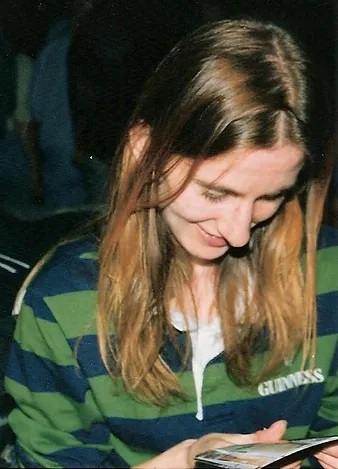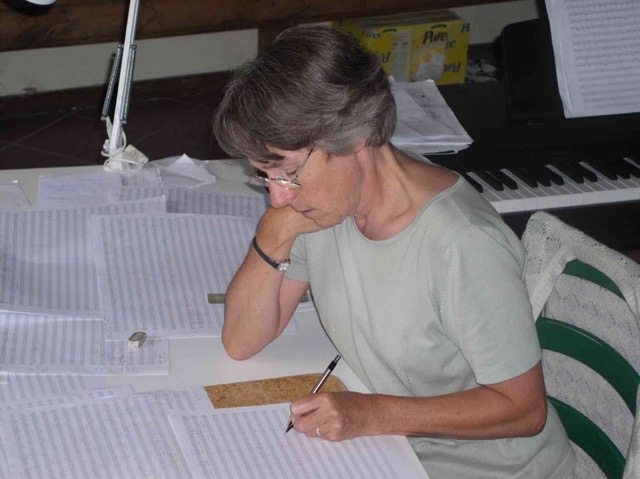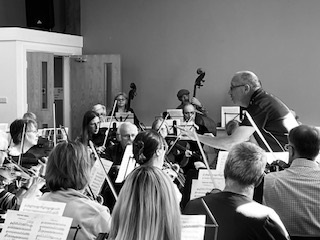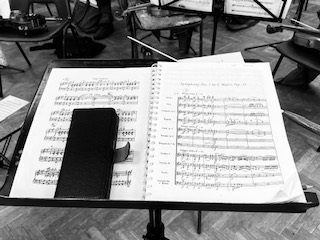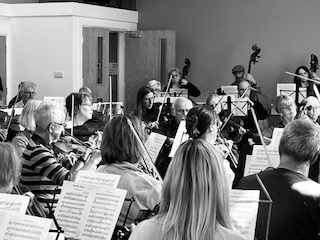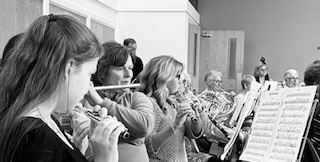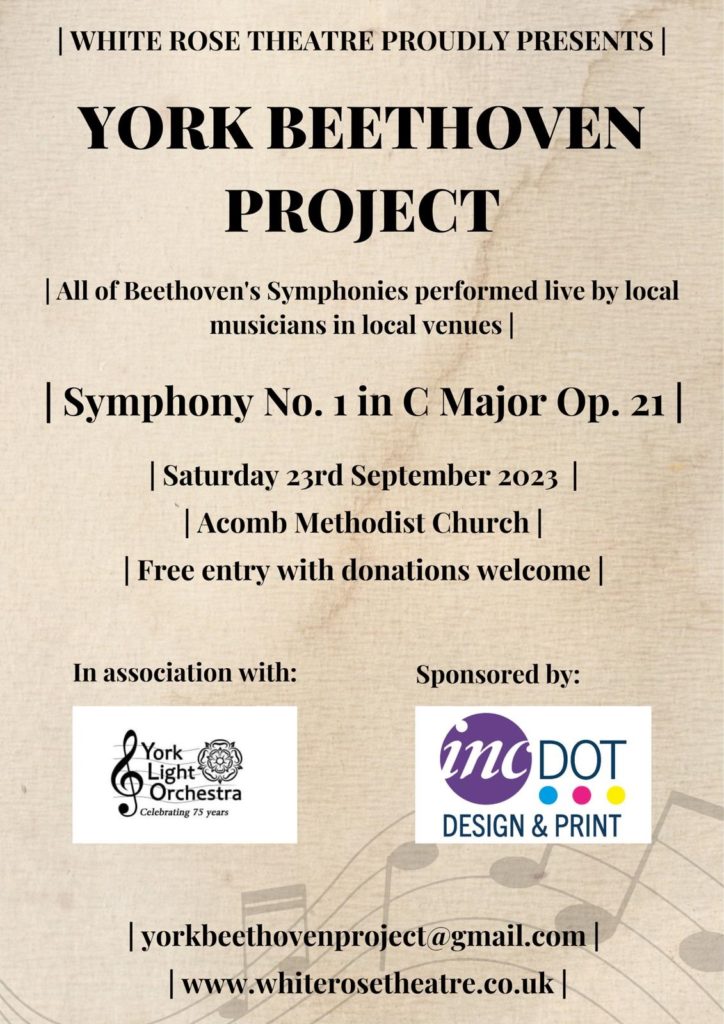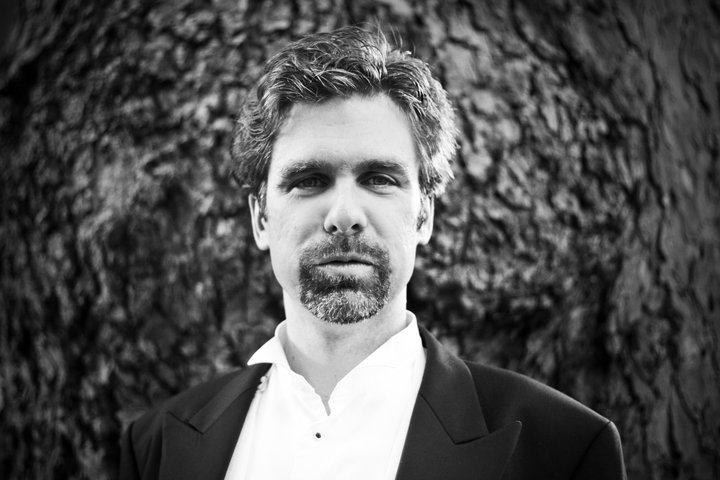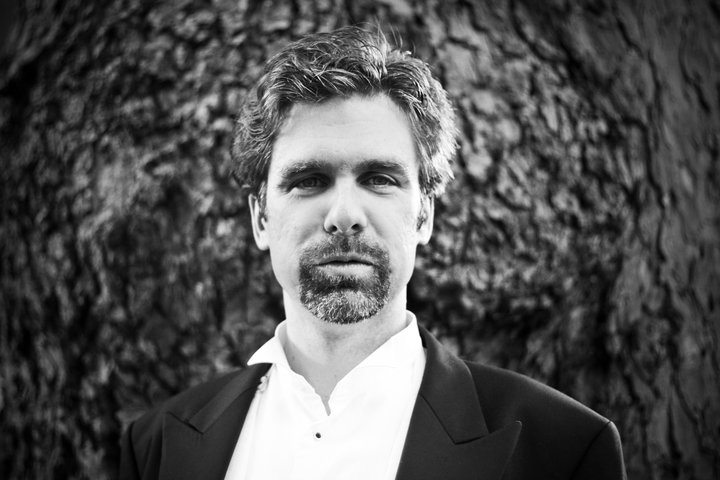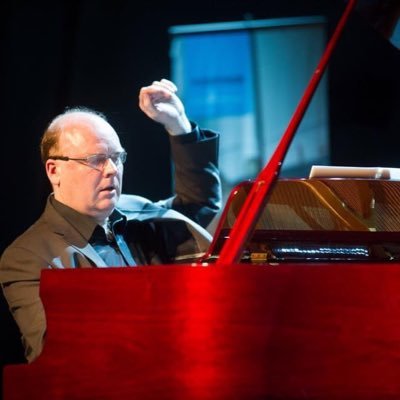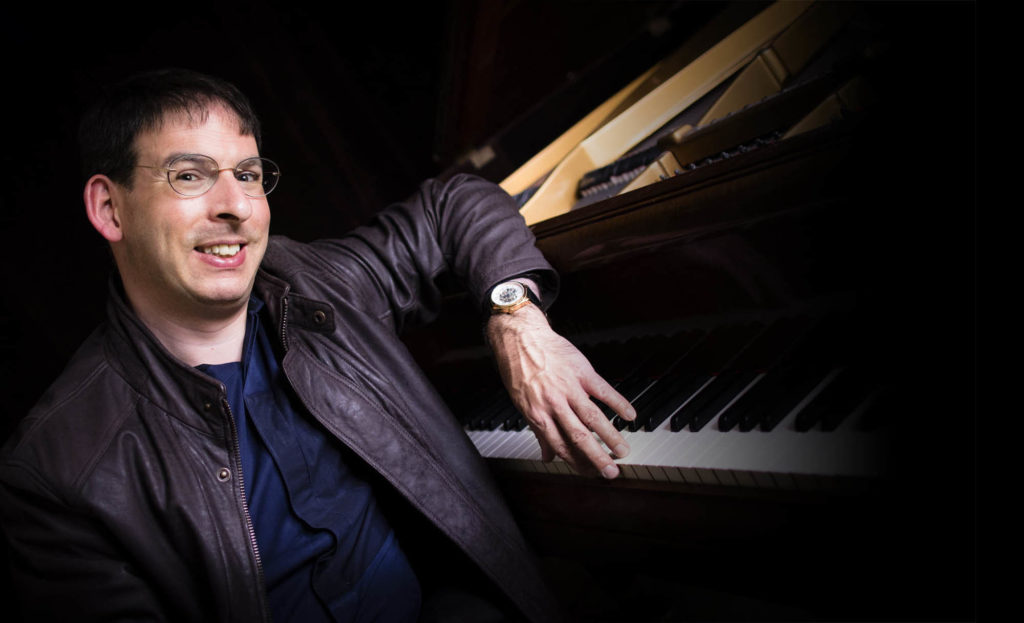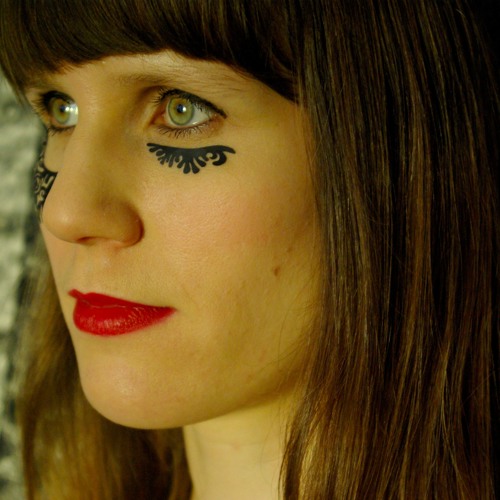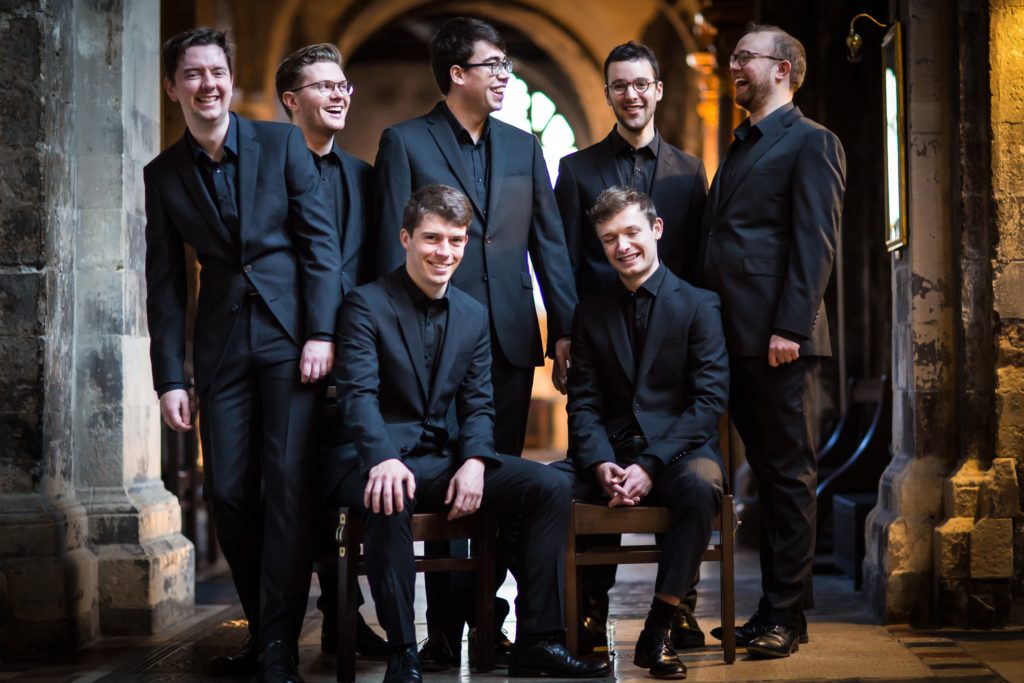
CHRISTMAS music, Scrooge the farmer, artist fairs and pantomime frolics set up Charles Hutchinson for the festive season ahead.
Festival of the week: York Early Music Christmas Festival, today until December 9
YORK Early Music Christmas Festival 2023 takes the theme of Music, Minstrels and Mystery, with today’s concerts by Flutes & Frets (Bedern Hall) and The Gesualdo Six & Fretwork Viol Consort (NCEM) having sold out already.
So has December 9’s finale, the Yorkshire Bach Choir’s Bach Christmas Oratorio (Sir Jack Lyons Concert Hall), but tickets are still available for The Harmonious Society of Tickle-Fiddle Gentlemen, Fiddlesticks, The Marian Consort, Ceruleo and Baroque In The North. For concert details and tickets, visit ncem.co.uk. Box office: 01904 658338.
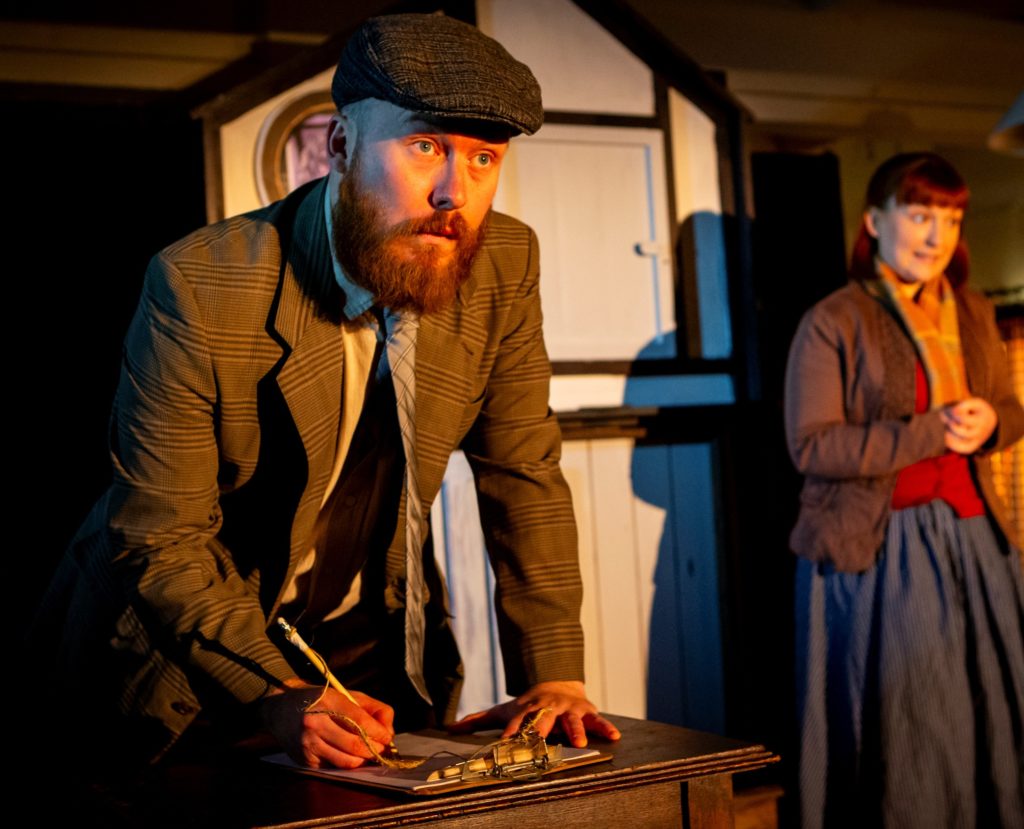
Tour opening of the week: Badapple Theatre Company in Farmer Scrooge’s Christmas Carol, until December 30
A GRUMPY farmer? From Yorkshire? Surely not! Welcome to Kate Bramley’s rural revision of Dickens’s festive favourite, A Christmas Carol, now set on Farmer Scrooge’s farm and in his bed in 1959 in Green Hammerton company Badapple Theatre’s tour of Yorkshire and beyond.
York actors James Lewis-Knight and Emily Chattle play multiple roles in a tale replete with local stories and carols, puppets and mayhem, original songs by Jez Lowe and a whacking great dose of seasonal bonhomie. For tour dates and ticket details, visit: badappletheatre.co.uk or call 01423 331304.
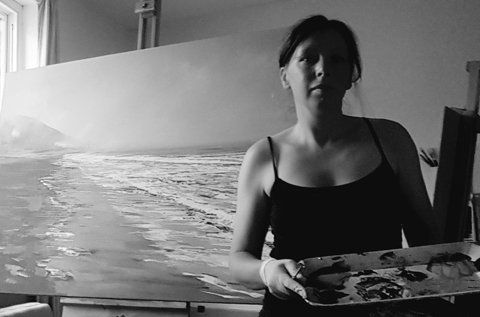
Artists with Christmas in mind: South Bank Studios Christmas Artists Trail, hosted by South Bank Studios, Bishopthorpe Road, York, today and tomorrow, 10am to 4pm
JOIN artists, illustrators and makers in the South Bank area of York for a weekend of festive cheer and a chance to visit artists’ houses and studios. For sale will be paintings, illustrations, ceramics, textiles, cards and gifts.
Taking part: Jill Tattersall, at 11 Mount Parade, today and tomorrow; Marie Murphy, 38, Scarcroft Road, today; Donna Maria Taylor, Carolyn Coles, Karen Winship, Rebeca Mason (11am to 4pm, in the loft), Katie Hill (outside) and Rachel Jones (outside) at South Bank Studio, today only.
Other art events happening in York over the weekend will be PICA Studios’ open studio, in Grape Lane, today and tomorrow, 10am to 5pm, and Rogues Atelier’s open studio, in Fossgate, today and tomorrow, 10am to 5pm.
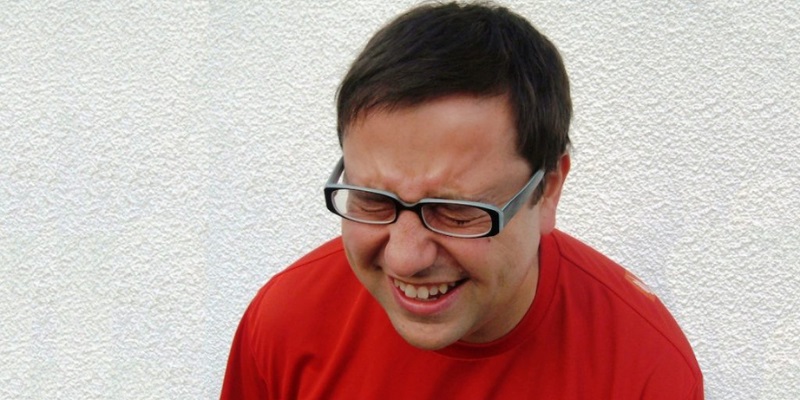
Comedy gig of the week: Laugh Out Loud Comedy Club, The Basement, City Screen Picturehouse, York, today, 5pm and 8pm
ESSEX comedian Markus Birdman headlines Laugh Out Loud Comedy Club’s brace of Basement gigs today. Joining him will be Tal Davies, Hasan Al-Habib and promoter/master of ceremonies Damion Larkin.
In 2022, Birdman suffered a stroke and ended up with a platinum heart, the subject of his Platinum Tour show. This year he was a semi-finalist on Britain’s Got Talent. Box office: lolcomedyclubs.co.uk.
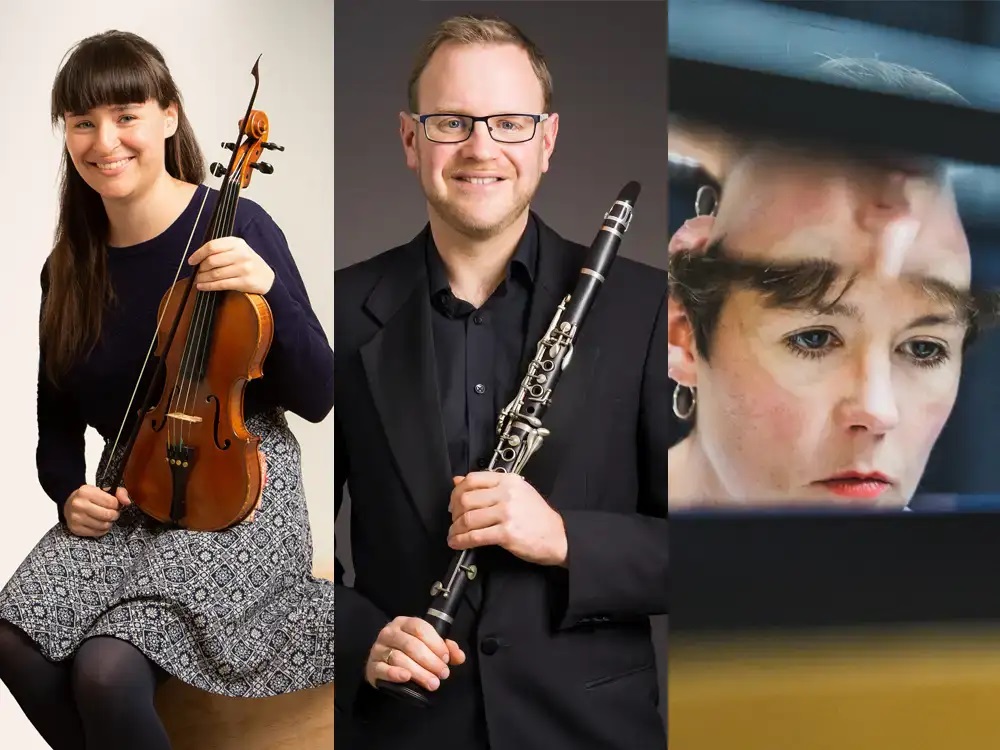
York Late Music: Micklegate Singers, After Byrd, today, 1pm; Nina Kumin, Jonathan Sage and Kate Ledger, 7.30pm, both at Unitarian Chapel, St Saviourgate, York
MICKLEGATE Singers bring together three anniversaries, Byrd, Rachmaninov and Thomas Weelkes, in a lunchtime musical sandwich of more than 500 years of a cappella choral music.
In the evening, Nina Kumin, violin, Jonathan Sage, clarinet, and Kate Ledger, piano, mark July’s death of Anthony Gilbert by performing four of the British composer’s works, plus music by Nicola LeFanu and David Lumsdaine, who both knew him well. Box office: latemusic.org or on the door.
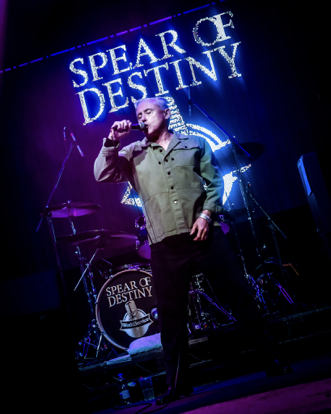
40th anniversary gig of the week: Spear Of Destiny, The Crescent, York, Wednesday, 7.30pm
FORTY years on from Epic Records’ release of Spear Of Destiny’s debut album, The Grapes Of Wrath, Kirk Brandon leads his punk-influenced power rock band on a 17-date November and December tour.
On the back of American travels, Brandon will be performing with his longest-serving line-up: Adrian Portas (New Model Army/Sex Gang Children), Craig Adams (Sisters Of Mercy/The Cult/The Mission) and Phil Martini (Jim Jones And The Righteous Mind), bolstered by Clive Osborne on saxophone and Steve Allen-Jones on keys. Support comes from former Simple Minds bassist Derek Forbes & The Dark. Box office: thecrescentyork.com.
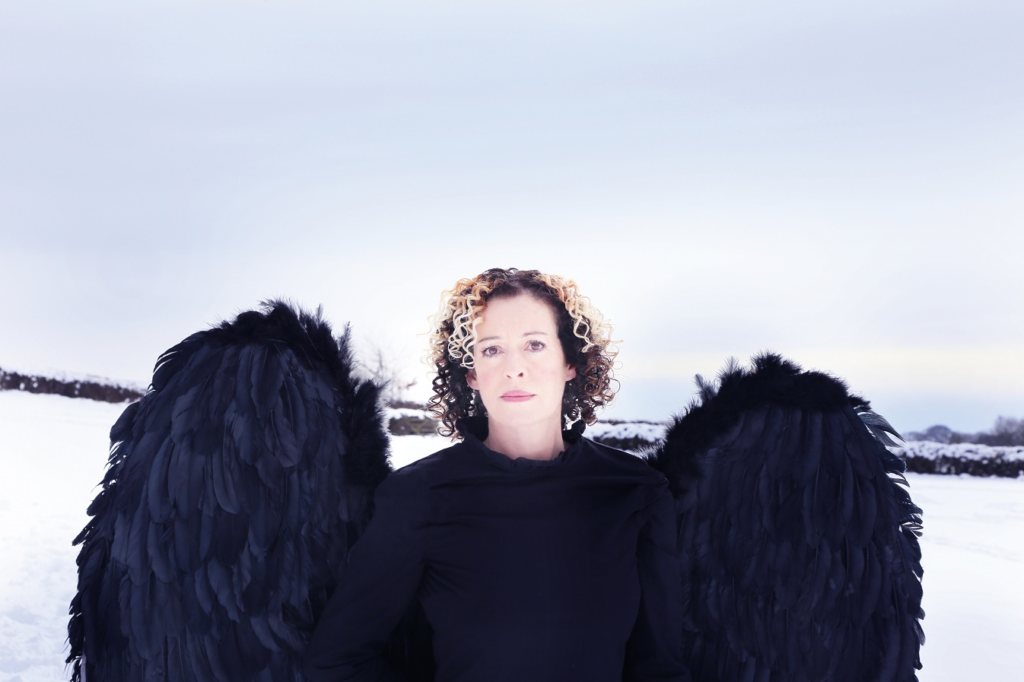
Festive folk gig of the week: Kate Rusby, Established 1973 Christmas Tour, York Barbican, Thursday, 7.30pm
BARNSLEY folk nightingale Kate Rusby marks turning 50 on Monday with the release of her seventh Christmas album, Light Years, and an accompanying tour that opens in York.
In the company of her regular band, coupled with the added warmth of the Brass Boys, Kate combines carols still sung in South Yorkshire pubs with her winter songs and favourite Christmas chestnuts. Look out for the fancy dress finale. Box office: yorkbarbican.co.uk.
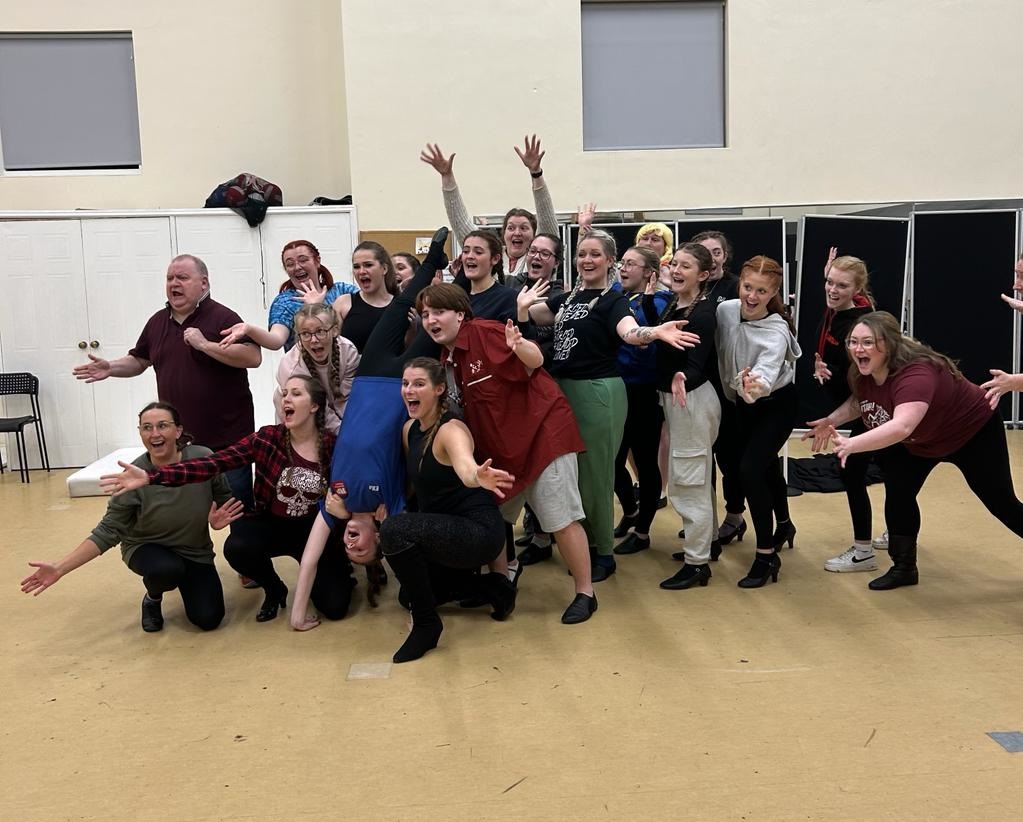
Pantomime opening of the week: Rowntree Players in Cinderella, Joseph Rowntree Theatre, December 9 to 16, except December 11
HOWARD Ella directs Rowntree Players in a rollicking romp of a pantomime, wherein Cinderella and Buttons are fighting to save the Windy End Hotel when the Queen announces a ball to celebrate Prince Charming’s birthday.
Trouble is brewing with the arrival of a “truly horrific trio”, determined to find themselves a prince. Expect song, dance, all the traditional silliness…and a mad rush for the last few tickets for all performances. Box office: 01904 501935 or josephrowntreetheatre.co.uk.
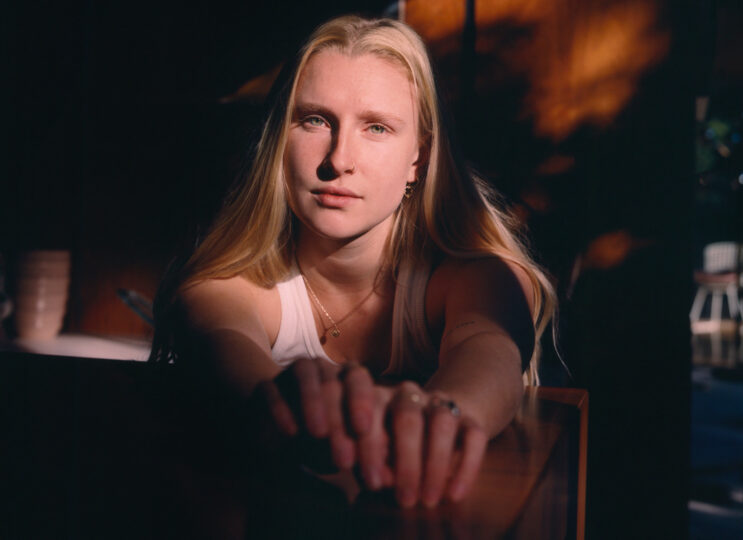
Recommended but sold out already
RIPON singer-songwriter Billie Marten, now based in London, returns home to Yorkshire to showcase her fourth album, Drop Cherries, on which she explores the struggle with modernity versus tradition, nature, mental health, relationships and “a general voyeurism on the world as she sees it”. Clara Mann supports.

